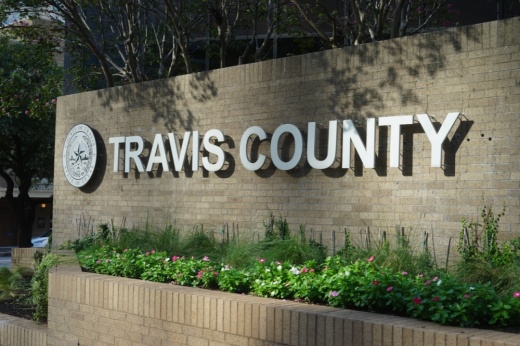Travis County officials voted against joining a third-party review of local government entities' work combating homelessness, citing concerns with the project's costs, the prospect of working with consultant McKinsey & Co., and Austin's outreach to the county while developing the proposal.
The big picture
Earlier this month, Austin officials proposed launching an independent review of several Central Texas entities' "strategies, programs and services" tied to homelessness. Members included Austin, Travis County, the low-income hospital district Central Health and the county mental health authority Integral Care.
Austin City Council members authorized city staff to negotiate agreements with each entity for the third-party assessment Jan. 16. The McKinsey-managed project was estimated to cost $2 million, with $1 million pulled from Austin's federal American Rescue Plan Act relief funds and $200,000 to $400,000 provided by the other three participants.
Council voted to advance that plan with abstentions from Northeast Austin council member Natasha Harper-Madison and Central Austin council member Zo Qadri, who said several issues factored into his decision.
“I abstained due to the expedited process for this contract and the compelling feedback from community and county partners that voiced concerns. The funding would come from finite ARPA resources, and I believe we must be deliberate about how those funds are allocated," Qadri said in a statement.
What happened
Although Travis County officials had expressed some reservations about the project as well as the city's process before City Council's mid-January vote, interim City Manager Jesús Garza said he was confident that Austin representatives and county commissioners could reach an agreement on the proposed collaboration.
But two weeks later, the commissioners voted against negotiating with Austin and spending up to $400,000 on McKinsey's consulting work. Instead, they asked Travis County staff to conduct their own homeless strategy assessment to be shared with the other partners this summer.
“I feel like this action will allow us to do what was theoretically proposed under the [interlocal agreement], and our staff will have the time to do this. And they are really the experts on what we’re currently doing," Commissioner Brigid Shea said Jan. 30. "I want to be clear: To me, this action articulates our intention to work with them in partnership, we are just not choosing to do it in this form with this consultant."
In a statement, Homeless Strategy Officer David Gray said the city remains focused on the third-party evaluation despite the county's exit. A city spokesperson confirmed Austin's negotiations over the review are continuing.
“The city of Austin recognizes the value of working with our agency partners to collectively figure out what works, make adjustments, and ensure that our strategies are aligned to genuinely help people find reliable and sustainable solutions to end their homelessness. That is why the city remains committed to pursuing a comprehensive review, which is a practical and crucial step in creating meaningful impact in the lives of those in need," he said.
A county spokesperson said commissioners aim for local collaboration on homeless strategy going forward.
"The Travis County Commissioners Court supports coordinating and aligning strategies for our unhoused neighbors and is committed to doing this work through a collaborative and transparent process," they said.
As of late January, Central Health staff remained in negotiations with the city over its role in the review. An Integral Care representative said the authority's interlocal agreement with the city is now being reviewed and that it looks forward to collaborating with the Healthier Austin Partners.
According to the county
While electing to depart from the Austin-led review, county commissioners said they were disappointed at the outcome and still hope to work with other local governments to tackle homelessness. However, skepticism about McKinsey and its project price tag contributed to their decision.
Yasmine Smith, vice president of justice and advocacy with the Austin Area Urban League, told commissioners before their vote that McKinsey wasn't a good fit given its "history of very harmful impacts to communities" and "ballooning prices." Shea said she agreed with some criticisms of the selected firm.
“I think there are a number of concerns that have been raised about the consultant," Shea said. "We certainly don’t have any disagreement with the idea of working with our governmental partners to really look at how we can improve our homeless services, but I don’t think there’s an appetite for joining this [interlocal agreement] with this consultant.”
Austin representatives previously said city staff picked McKinsey over one other consultant after an "informal" solicitation given the firm's qualifications. The city didn't respond to additional questions about McKinsey's selection Jan. 31.
Additionally, county officials stated some dissatisfaction with the city's approach to the homeless services proposal.
Commissioner Jeff Travillion said the homeless services review is one of several recent instances in which city representatives failed to involve Travis County in planning efforts before asking for their participation, a trend he hopes can change.
“I’m sure that we want to work with the city, but I think it is important that we work together as partners not subordinates," he said.
Commissioner Ann Howard shared a similar sentiment, saying that such government efforts don't work well without early cooperation.
“I’m sort of sad today because I so badly want to work together ... with our partners to address homelessness. And I wanted this to be an opportunity for us to work together," she said. "I appreciate that we’re asking our partners to come together with us this summer to do that, because I think our people deserve it. Not only the people outside who are cold or hot, but the taxpayers deserve us to be working together. They don’t care if it’s a city or a county policy, they want it to work.”





